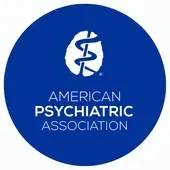Vero Beach, FL (772) 300-9077
Mood disorders can significantly impact daily life, ranging from mild disruptions to severe impairments.
When intertwined with substance abuse, these challenges often intensify. At Wave Treatment Centers in Vero Beach, FL, we recognize the complex nature of mood disorders, influenced by factors like age, gender, genetics, and environment.
Our team, led by Dr. Jonathan Beatty, offers diverse, tailored treatments to help you effectively manage your mood disorder. Whether you're dealing with depression, bipolar disorder, or anxiety compounded by substance use, we're here to support you. Our Vero Beach facility provides personalized care plans designed to address your unique needs and circumstances.
Don't let a mood disorder control your life. Reach out to Wave Treatment Centers today to explore treatment options that can help you regain stability and improve your overall well-being, right here on Florida's Treasure Coast.
"We distinguish ourselves from most other practices with the highly specialized treatment options that we offer to treat mood disorders and co-occurring substance use disorders."
Dr. Jonathan Beatty, Founder
Start Your Healing Journey
A healthier, happier life starts here — talk to our caring staff today.
Vero Website Form
We will get back to you as soon as possible.
Please try again later.
Mood Disorders Treatment FAQ
Frequently Asked Questions
-
What are some types of mood disorders?
The most common mood disorders include major depression, dysthymic disorder, bipolar disorder, mood disorder due to a general medical condition, and substance-induced mood disorder:
- Major Depression – Major depression (also referred to as clinical depression) is the most common type of mood disorder in the country. About 17.3 million Americans experience this disorder. It is characterized by a persistently depressed mood, along with a loss of interest in activities. This type of depression often impacts a person’s ability to achieve normal functioning on a daily basis.
- Dysthymic Disorder – Dysthymic disorder may not be as widely spoken about as major depression is, but it impacts more than 3 million Americans each year. The major difference between this type of disorder and major depression is that dysthymic disorder causes a depressive mood lasting for at least two years or longer. There must also be at least two other symptoms of depression occurring within this time frame.
- Bipolar Disorder – Bipolar disorder, which affects more than three million people in the United States each year, is defined by significant mood swings that are both manic and depressive. This type of mood disorder can be agitated easily by one’s environment, as well as their genetic predisposition to bipolar disorder and associated disorders.
Mood disorders caused by a general medical condition and substance-induced mood disorders are slightly different than the above mood disorders, as they are triggered by factors not directly related to depression. For example, those who experience mood disorders caused by a general medical condition may develop symptoms associated with a mood disorder in response to having a heart attack, developing a neurological condition, experiencing irritable bowel syndrome (IBS), having cancer or other life-threatening health condition, and so on.
Mood disorders that are substance-induced occur in those individuals who abuse mind-altering substances that trigger the onset of depressive symptoms. For instance, someone who abuses methamphetamine may develop a mood disorder as a result of the damage the drug does to the brain. Meth, in particular, is highly destructive and can alter areas of the brain that would otherwise be capable of regulating one’s mood.
-
What are the symptoms of a mood disorder?
Not every mood disorder has the same symptoms. Generally speaking, however, people who experience a mood disorder are likely to develop some or all of the following common symptoms:
- Irritability
- Aggression
- Hostility
- Problems sleeping
- Changes in eating habits
- Difficulty concentrating
- Feelings of hopelessness
- Low self-esteem
- Social withdrawal
- Trouble making decisions
- Fatigue/low energy
-
What are the treatments for mood disorders?
When mood disorders go untreated, attempting to live a happy, healthy life in the face of troublesome symptoms can be challenging. Thankfully, mood disorders like major depression and bipolar disorder can be successfully treated so that the individuals affected can learn how to manage their symptoms and enjoy their lives properly.
Mood disorders are typically treated with a combination of medication and therapy. Some medications that have proven to be helpful in treating a wide range of mood disorders include:
- Antidepressants (Wellbutrin, Prozac, Zoloft, Celexa)
- Antipsychotics (Seroquel, Risperdal, Abilify)
- Mood Stabilizers (Lithium, Depakene, Tegretol)
Solely taking prescription medication to treat a mood disorder is not as effective as it is when combined with one or more types of therapy. For mood disorders specifically, some of the therapies that are most frequently utilized include the following:
- Psychotherapy
- Cognitive behavioral therapy (CBT)
- Interpersonal therapy
- Light therapy
- Transcranial magnetic stimulation (TMS)
-
Does insurance cover treatment for mood disorders?
While every insurance plan is different, your insurance company may offer coverage for mood disorder treatment.
If you are considering treatment for a mood disorder, contact your insurance company and ask about any coverage they offer.
In addition, Medicare and Medicaid may cover mood disorder treatment. Contact your state’s office to see if you qualify.
First visit went well, Dr. Beatty was easy to speak with and listens well.
Brent E.













